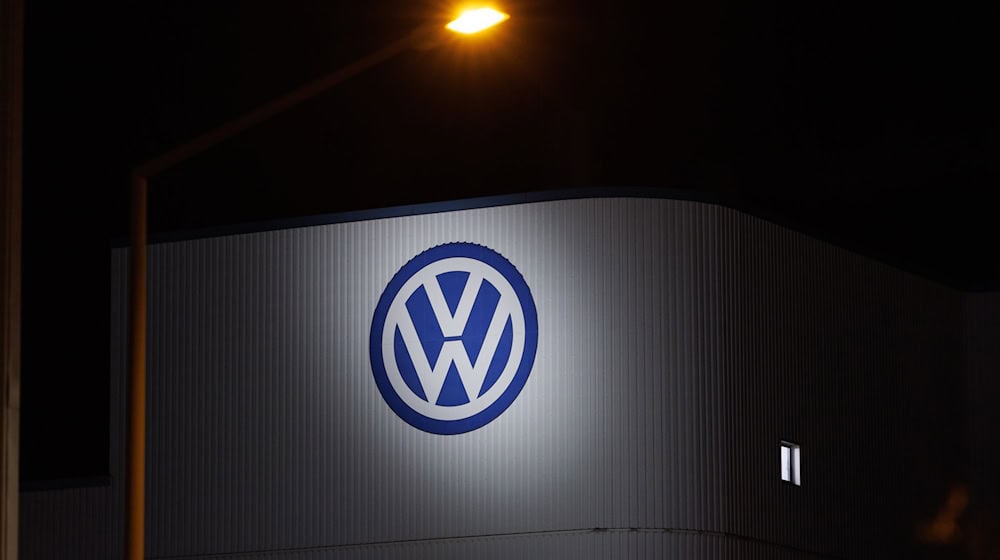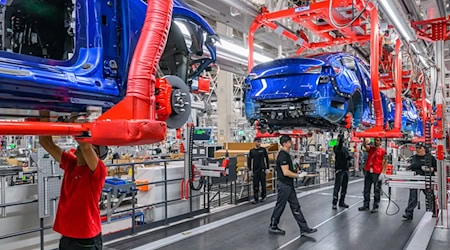The crisis in the automotive industry is leaving its mark on Europe's largest car manufacturer: Volkswagen wants to make do with a good 35,000 fewer employees in future and produce over 700,000 fewer cars a year. This is part of a toughly negotiated compromise in Volkswagen's tough wage dispute with IG Metall, which ended on Friday evening after days of negotiations. There will be no plant closures or compulsory redundancies.
Federal Chancellor Olaf Scholz called the wage agreement a "good, socially acceptable solution". Times are not easy for the employees, but the compromise ensures that the Group and its employees have a secure future, despite all the hardships.
No joint press conference
The separate statements afterwards showed that this agreement is more of a hard-won compromise. The solution at least brings clarity for employees, families and entire regions, said Thorsten Gröger, head negotiator for IG Metall in Hanover. At the same time, VW brand boss Thomas Schäfer spoke in Berlin of tough decisions, but also important decisions for the future.
What the agreement is about:
The planned job cuts
Volkswagen wants to cut more than 35,000 jobs by 2030 in a socially responsible manner. According to the plan, around 4,000 jobs in technical development in Wolfsburg are to be cut. In addition, the number of apprenticeships offered each year will be reduced from 1,400 to 600 from 2026 in line with demand. VW will save 1.5 billion euros per year by reducing labor costs. At the same time, the car manufacturer promised to safeguard jobs until the end of 2030.
This was one of the core demands of IG Metall - VW had terminated the previous employment guarantee, which had ruled out redundancies for more than 30 years, in September. If no follow-up regulation is agreed after the guarantee expires in six years, VW will have to pay out one billion euros to the employees, the union said.
The future of the plants
The IG Metall has also prevented entire plant closures. However, some sites - including the main plant in Wolfsburg - are facing serious changes. In addition to the reduction of around 4,000 jobs, the end of the combustion Golf is certain. Production of the Golf and Golf Variant models will be relocated to Puebla in Mexico from 2027, the Group announced.
In future, the ID.3 electric models and the Cupra Born will be produced at the company headquarters. VW wants to secure the future of the site with the electric Golf and another model based on the future electric car architecture. It also seems clearer for the plants in Emden and Zwickau, which have already switched to electric cars, with models from the ID series and electric cars from Audi respectively.
The situation is different for the sites in Osnabrück and Dresden, which were recently classified as being at risk. In Osnabrück, production of the T-Roc Cabrio is to be extended until late summer 2027. Beyond that, the prospects for the 2,300 employees are more difficult to grasp. The trade union has formulated the goal of developing a future economic perspective for the site. The Group says that options for a different use of the site are being examined.
According to VW, vehicle production in the Gläserne Manufaktur in Dresden will end at the end of 2025. The company is working on alternative options, it said. These include the possibility of participating in a third-party concept. IG Metall emphasizes that Volkswagen will continue to be present at the site with its own activities in the future.
Salary development
When it comes to pay, there will be a zero round for the approximately 130,000 VW employees. Similar to the agreement in the metal and electrical industry, a salary increase of five percent will be paid into a fund in two stages and not into the employees' accounts. This fund would be used, for example, to finance flexible working time reductions for some of the employees. The trade union and works council presented this concept in November - the car manufacturer publicly rejected it, IG Metall announced.
The two sides also agreed to revise the pay system, which is now decades old. The analysis is to begin next year, with implementation not until 2027. From then on, future collective bargaining rounds could also ensure new pay increases at VW before 2030.
Copyright 2024, dpa (www.dpa.de). All rights reserved




